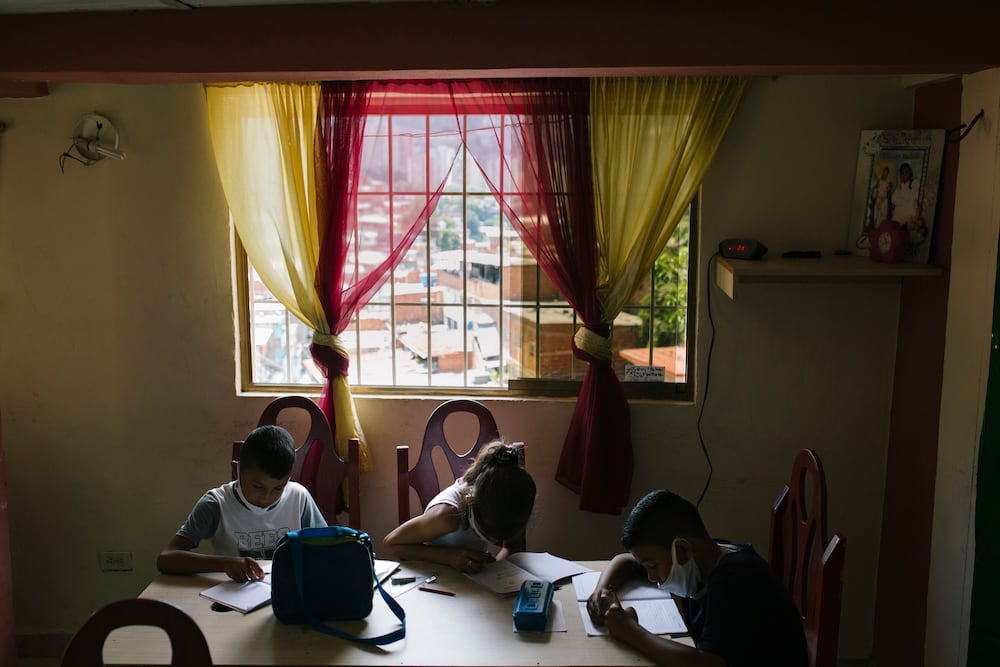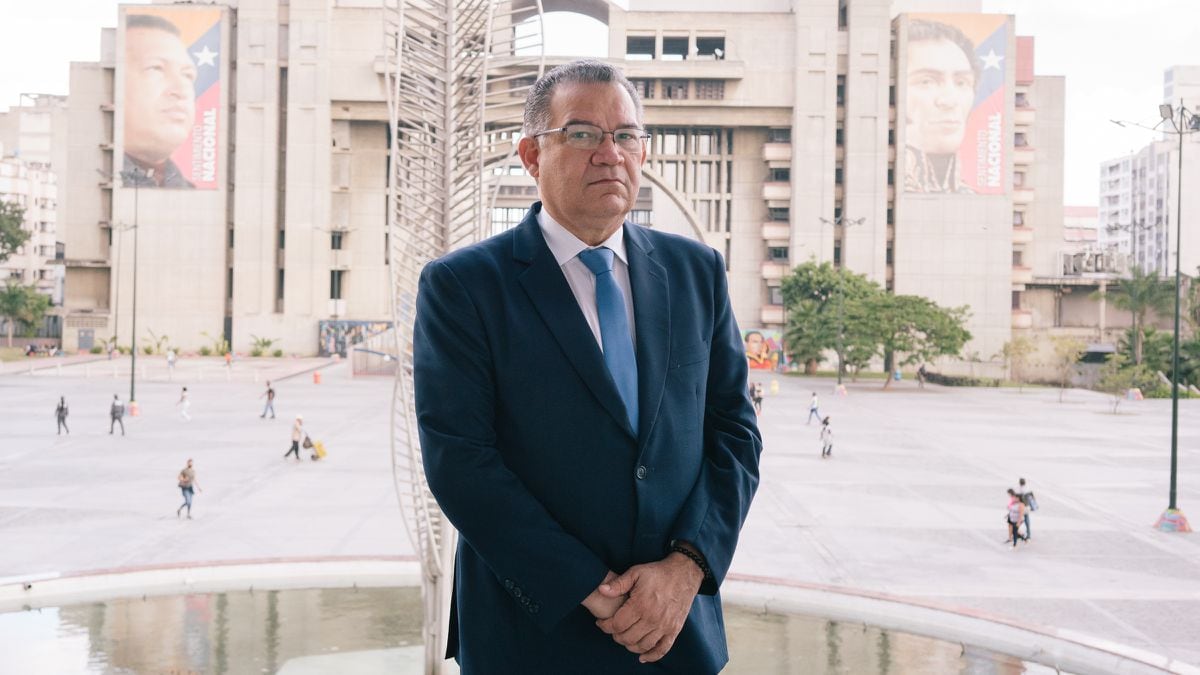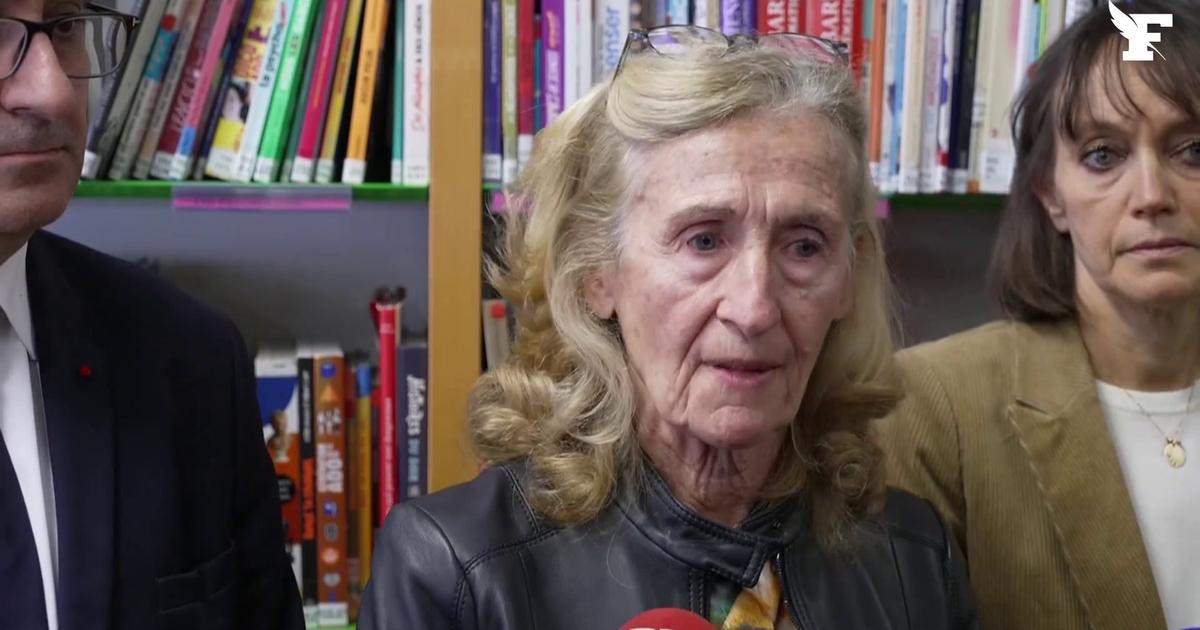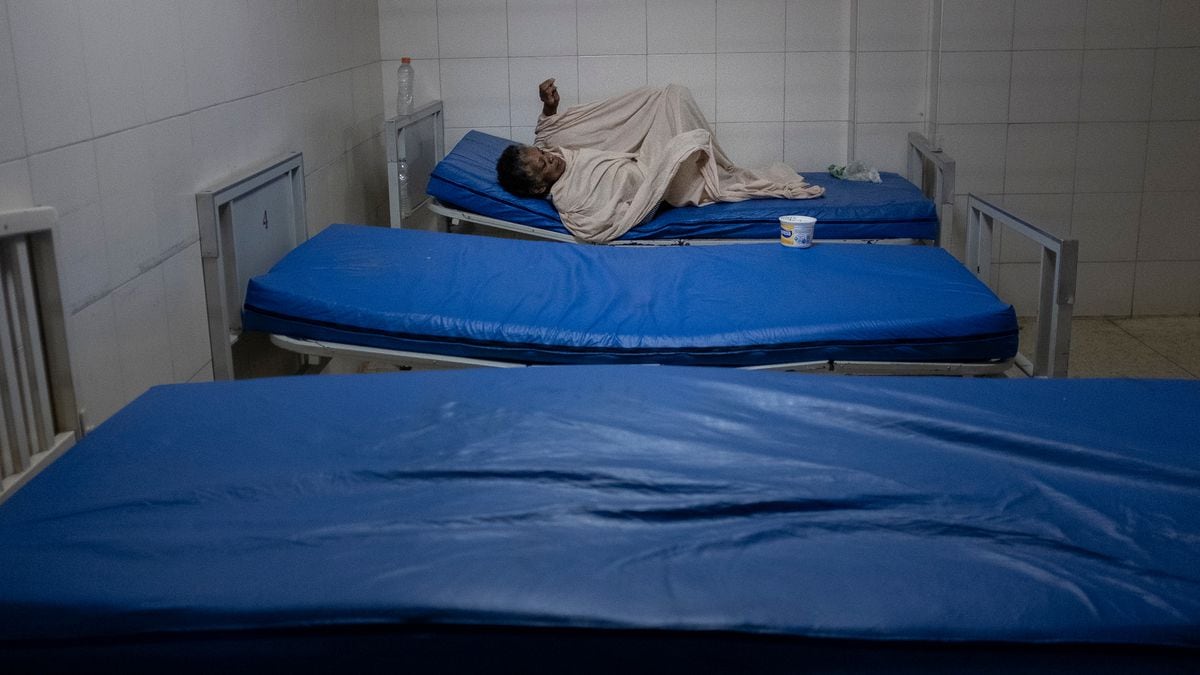Crumilka Curvelo takes out some handmade dolls, several folders with educational posters, brochures of
Romeo and Juliet
and
A streetcar called desire
dramatized by her students and a collection of restaurant menus made with scrap materials.
It shows them with pride.
The 52-year-old teacher used these resources to keep her students' attention in a public school in the 23 de Enero neighborhood, in the center of Caracas.
They were her weapons in the difficult battle to retain students in the classroom in a country that is undergoing a deep humanitarian crisis and where lack of food, water, electricity, transportation or gasoline are frequent reasons for missing classes.
A new school year began this week remotely in Venezuela and one of the main fears has been confirmed.
The pandemic has become a sieve through which students and teachers escape, who have also declared themselves in conflict in demand for better salaries.
Crumilka has reason to protest.
Several days a week her fridge is empty.
She manages to eat when someone gives her a kilo of rice or flour.
The telephone with which he can communicate was given to him by a former student who emigrated from the country.
In the school where he works, of 39 high school teachers, only five have rejoined.
In the primary half has been missing.
At least 55 students have withdrawn, some of them to continue adding to the migratory trickle of Venezuelans, amid the worsening economic crisis due to the pandemic.
The teacher is in charge of more than 300 students from ten sections of high school to whom she teaches English.
Her salary does not exceed 2 dollars a month, the minimum wage in Venezuela.
"Now I will do a substitution in Chemistry because the teacher got a job in a store where they pay him 8 dollars a month and he retired," he says.
In the first months of her quarantine, she also lost one of her students because she went to work with her father in a market in the city.
"They paid them with remains of vegetables or fish," says Crumilka.
The three months that elapsed between March and June, the classes were at a distance, with all the difficulties that this means for a country that has the slowest Internet in the region and in which only four out of every 10 Venezuelans have a mobile phone line active, according to official statistics for 2019. Crumilka recalls that one day he spent 16 hours trying to check an email with attached assignments from his students.
"It's just too frustrating," she says, especially since her hat of educational tricks should stay put.
Conditions did not improve during the August recess.
It will be taught through guides that parents must collect every 15 days and some WhatSapp messages that arrive at the wrong time.
For the unions, which group 430,000 public education teachers in the country, there are no conditions to return to classes.
They asked to postpone the start of classes, but they were not listened to by the government of Nicolás Maduro.
In a survey carried out by the Foundation for Comprehensive Teacher Development on the impact of the coronavirus in Venezuela, it is found that only 10% of students report having a stable connection, 67% do not have material resources for work at home and 94% of Teachers believe that most do not have good electricity service, or digital training to comply with the educational program.
The street trade union conflict has moved to the virtual world.
Only private schools, which account for just 15% of school enrollment, have started classes online with the vagaries of light and the internet.
The rest accumulate days without receiving an education and the inequality gap grows.
Although it is an atypical year for education in most of the world, in the fragility of Venezuela the pandemic represents a huge setback.
The classroom at home
Iris Pellicer says that many of the children in the José Félix Ribas neighborhood, in the populous Petare, east of Caracas, did not receive classes again after the COVID-19 quarantine was decreed last March.
That is why she decided to open a kind of school in her home, where she receives the neighborhood students in groups of five.
"Having the children doing nothing for so long worries me," he says, "What will become of Venezuela in five years if this is the education we are going to have?"
Pellicer only has a tablet, a mobile phone with which he has to fish a signal and the books his children left behind.
But that is much more than what some of the students he receives have, who have already gone six months without studying.
The little school, as she calls it, is a palliative to her anguish.
“Imagine a boy sent some polynomials by WhatsApp.
They have a professor here that they can ask, ”says the 56-year-old woman, who is also trying to complete her law degree online.
The small containment that Pellicer does in his neighborhood does not alter the sad indicators that Venezuela showed prior to the pandemic.
The Venezuelan Living Conditions Survey, conducted by three universities in the country, revealed that between 2019 and 2020, 1.7 million fewer students were reported in the entire school system, from initial education to university level.
The lag also increased.
Almost 20% of students between the ages of 12 and 17 are two years behind and 18% are one year behind.
Educational coverage in Venezuela peaked and fell back, according to the report.
Last year, 40% of students frequently skipped classes.
Fausto Romeo represents an association of private schools in Venezuela.
In some of these institutions they have recorded video classes, use digital platforms and have tried to comply with a school schedule and activities from home.
“It is not only the educational issue, it is also the psycho-affectivity that the school provides.
Students need to see their teachers and their peers.
My biggest concern is that with this we will be losing boys, ”he says.
In private schools, a teacher can earn between $ 80 and $ 100 a month.
It is a huge difference from the public sector salary tables, but it is not enough either.
Luis Martínez Vera, 63, is a professor of social sciences in both sectors.
It is on the hinge of inequality.
He interacts with the students of the private school through a digital platform, with those of the public he only exchanges emails.
Despite the two salary incomes, the teacher, who has two university degrees and master's degrees, works as a gardener near his home in order to make savings.
He also grows tomatoes, peppers or papayas at his home in Caracas, so he can eat "what is prohibitive to buy in a supermarket.









